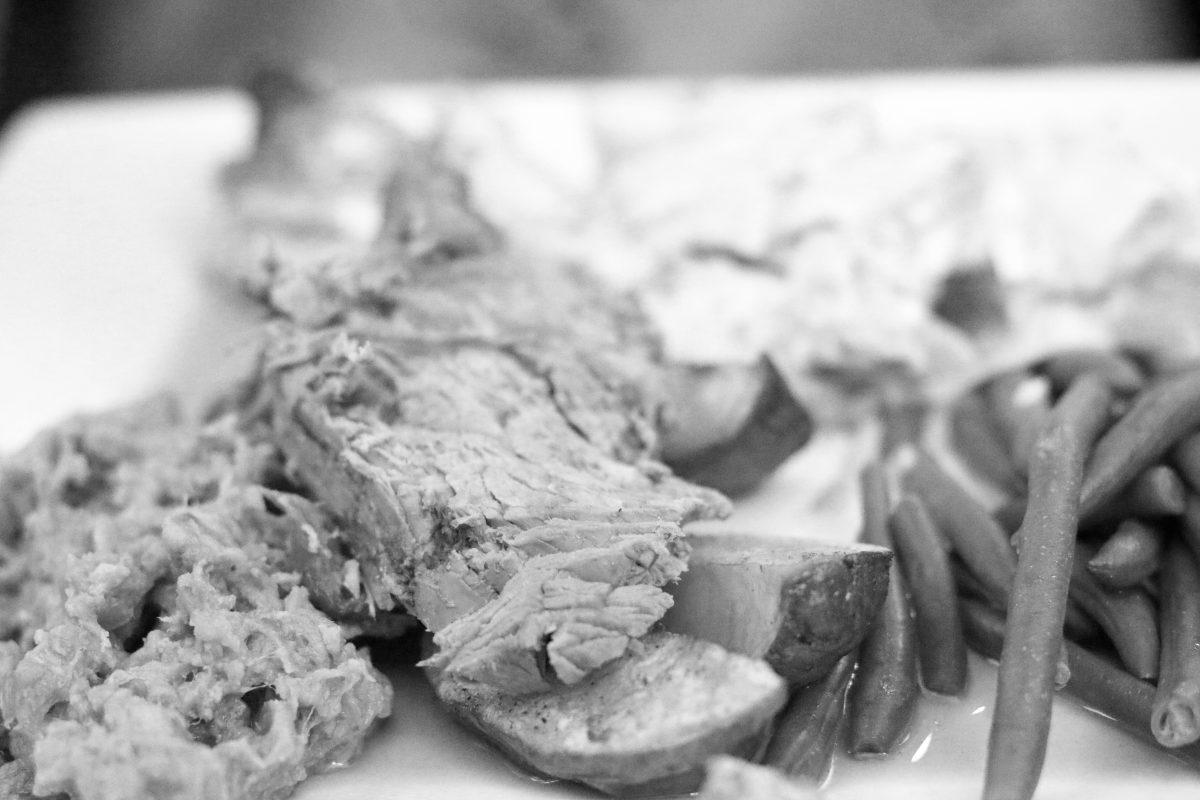The Rose Bowl stadium in Pasadena, Calif. can hold about 92,542 visitors and, according to the Mayo Clinic, one day’s worth of food waste in the United States would fill the entire stadium.
Comprised of 17 students, the N.C. State Stewards program is a student behavior change and peer-to-peer education campaign program. The Stewards, working in conjunction with the Sustainability Office, concentrated on campus food waste as a part of Change Your State, a behavior-change campaign, declaring a new theme for every month for how people can live more sustainably on campus.
Caroline Hansley, a senior in interdisciplinary studies and student coordinator for the N.C. State Stewards program, spent the month of September working with other Stewards to reduce campus food waste.
“I think it was really good, since we’re in our first year, to kind of see food as the monthly theme in September,” Hansley said. “Crop harvesting is coming to an end and [University Dining] has the All Carolina’s meal, which is really great.”
According to Hansley, the fight against waste is more than just recognizing food is wasted — people have to find a way to combat it.
Hansley said the biggest problem the Stewards run into is the misunderstanding of what constitutes food waste and just how much food is wasted.
Carla Davis, communication coordinator at the sustainability office, said the amount of actual waste is hard to picture, and that it is common to get lost in day-to-day routines.
“We have a lot of things we have to focus on in life, and not many people are paying attention to how much food they’re wasting or even how much trash they’re putting out,” Davis said. “We just have other things to think about.”
The Stewards and the sustainability office teamed up to hold a food waste audit on Sept. 3-4 at Fountain Dining Hall. Working during the dinner rush from 5-7 p.m., the Stewards, armed with rubber gloves, collected plates — scrapping the contents into bins.
On the first night, the Stewards took the students’ plates, scraped the contents into a bin and asked the students questions regarding their dining experience. The second night, after taking the students’ plates, the Stewards scraped the contents into a bin to be weighed later.
“Some of the national food waste specs are pretty significant, but, then again, people can’t really grasp those big national facts,” Davis said. “We wanted to give it a localized flair — we are compiling dinner waste. It’s very local to campus and helps people grasp how much we’re throwing out.”
At the end of the audit, the stewards weighed the food waste of more than 1,100 students who threw away a total of 221 pounds of food. Broken down, that’s just more than three ounces of food per person. If a person were to waste that amount at every dinner for one month that would total more than five pounds of food waste per person, per month.
“When you look at it as three ounces per person, it doesn’t sound like a lot,” Hansley said. “When it’s extrapolated though, that’s five pounds a month and that’s only factoring one meal, so it really is a lot. It adds up.”
Hansley said the correlation of food waste with how long a student spends eating in the dining hall to be the most surprising.
“We asked how long it took them to eat,” Hansley said. “The people who tended to stay longer generally ate more because they would socialize. They would take their time and go back but they’d say, ‘I’ve been here for 15 minutes, I’m not as hungry.’ But if you’re there and you’re scarfing down you don’t have time to finish everything. The time factor is an interesting dynamic.”
According to Hansley, the Stewards hope to try the audit on the other dining halls, Case and Clark.
“It would even be interesting to try the audit out on places like the Atrium,” Davis said.
Hansley and Davis said that students could do many little things to help reduce the amount of food they waste.
“It’s as simple as planning to make two trips through the buffet line,” Davis said. “Dining halls are buffet style, so you can go eat as much as you want. If we were paying by the pound, people, I would think, wouldn’t waste as much. It’s because it’s sort of a free for all that people don’t have any incentive not to waste.”
Hansley said there are ways for students to reduce food waste outside of dining halls, including volunteering with grassroots initiatives on and around campus.
“Besides these daily little things that you can do, you can be involved with campus farmer’s market on Wednesdays in the Brickyard,” Hansley said. “You can be involved and take it a step farther by getting involved in the local food movement. There are a lot of ways people can get involved. These are just a few of the many suggestions you can do on a daily basis. I think that scale is infinite.”








